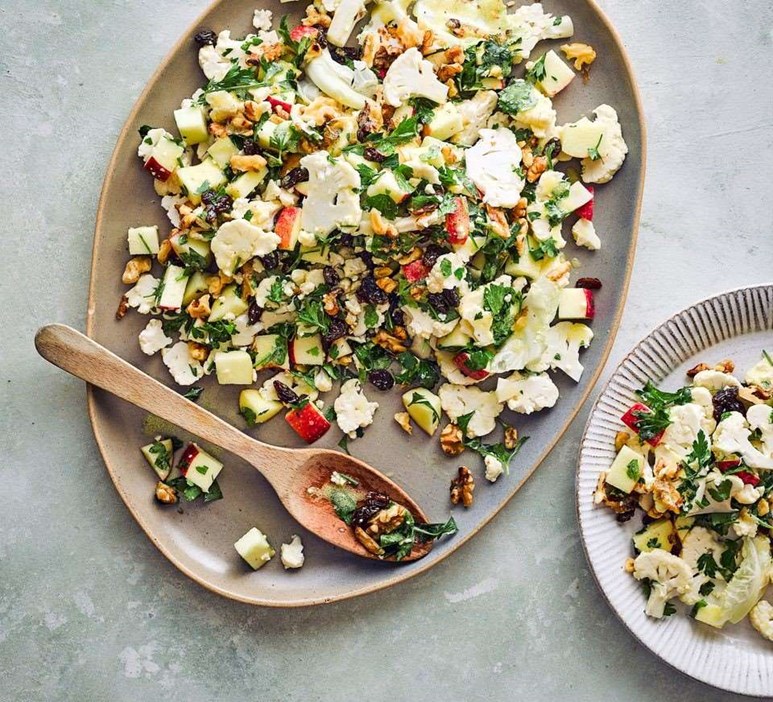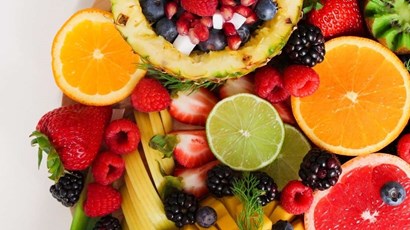10 trusted diets for your new year goals

8 high-protein nuts to boost your strength
Packed with protein, delicious, easy to eat, and versatile - nuts are a great source of fuel for people building their fitness and strength. But not all nuts are created equal, which is why we count down the top eight nuts you should eat while strength training and serve these up with tasty recipe ideas.
Nuts for fitness
If you're looking to increase your strength and build or tone muscle, there is no escaping the importance of protein in your diet. Protein is a nutrient made up of essential amino acids - the building blocks for muscle tissue, and all other tissues and cells in your body.
Any strength exercise routine you undertake will have limited results unless you also consume the optimal amount of protein per day as part of a healthy diet.
Nuts are an excellent plant-based protein source for both vegetarians and meat eaters. For years, meat sources of protein have enjoyed good publicity, but while we need to moderate meat consumption to protect our heart health, eating lots of high protein nuts can help keep our hearts healthy.
These eight common high protein nuts pack in the most protein per 100 g serving. All protein figures below can be found on the US Department of Agriculture website.
1. Peanuts
Protein: 25.8 g per 100 g of peanuts.
Peanuts top the list for providing the most grams of protein per serving. Even though peanuts are considered a nut from a nutritional standpoint, they belong to the legume family. This means they're related to lentils, chickpeas, and beans - all of which are also protein-rich and good for your heart.
Peanuts also contain many vitamins and minerals, including biotin which helps to convert the food you eat into energy1 - another great benefit for those who are strength training.
Like all nuts, you can enjoy their delicious nutty, earthy flavour as a raw snack, or incorporate them in many dishes.
Recipe idea: 5-minute homemade peanut butter.
2. Almonds
Protein: 21.2 g per 100 g of almonds.
From a culinary standpoint, almonds are grouped with nuts - their nutty, woody, and sweet flavour can be prepared in many different ways in cooking. However, almonds are technically a high protein seed. Like many nuts, they are high in antioxidants, reducing cell damage made by reactive molecules known as free radicals - which is one of the risk factors for heart disease and some cancers2.
Recipe idea: Fish tagine with saffron and almonds.
Fish tagine with saffron & almonds

3. Pistachios
Protein: 20 g per 100 g of pistachios.
These high protein nuts have milder, sweeter notes and a lower fat and higher fibre content compared with other nuts3. This makes them a good choice for people looking to create a calorie deficit while remaining fuller for longer - especially useful for healthy weight loss.
Other health benefits of pistachios include their high amounts of vitamins and minerals, and their higher ratio of essential amino acids to protein content, when compared with other common nuts3. Minerals, vitamins, and essential amino acids support a wide range of crucial mechanisms in your body.
Recipe idea: Chicken and pistachio salad.
4. Cashews
Protein: 15.3 g per 100 g of cashews.
Cashew nuts are a good source of protein as well as several other health-promoting nutrients, including copper. This essential trace mineral is needed for many physiological processes, including brain development, cell and tissue creation, and immunity4.
When you don't get enough copper, you have a higher chance of developing health problems such as anaemia, high cholesterol, osteoporosis, and an increased vulnerability to infections5.
Cashews can be blended to add rich, nutty notes to sauces or added to dishes raw to add crunch and texture.
Recipe idea: Cashew and fragrant vegetable biryani.
10 trusted diets for your new year goals
Not all New Year diets are fads. We've hand-picked ten of our most science-backed and sustainabl...
5. Walnuts
Protein: 15.2 g per 100 g of walnuts.
As well as being another protein-rich nut, the dry and slightly bitter walnut is an especially healthy nut for your heart. One large study found that eating walnuts and peanuts regularly could significantly reduce your risk of coronary heart disease and cardiovascular disease6.
It's believed that this is because both walnuts and peanuts are particularly rich in a plant-based form of omega-3 fatty acids - called alpha-linolenic acid (ALA) - that can protect your heart and ward-off heart disease7.
Recipe idea: Walnut, cauliflower and apple salad.
Walnut, cauliflower and apple salad

6. Hazelnuts
Protein: 15 g per 100 g of hazelnuts.
Hazelnuts are another great source of protein for muscle building. These are the nuts used in nutty chocolate spreads like Nutella - their woody, nutty taste complimenting the sweet chocolate.
When eaten regularly, they can also help to lower LDL (bad) cholesterol and increase HDL (good) cholesterol, regulate blood pressure and can help improve blood sugar levels8. These benefits are reversed when you stop eating these delicious, earthy nuts, so it's best to keep them in your diet.
Recipe idea: Celeriac, hazelnut, and truffle soup.
7. Brazil nuts
Protein: 14.3 g per 100 g of Brazil nuts.
These high protein nuts have a smooth, buttery texture and are relatively large. Due to their size, eating only one Brazil nut a day provides your daily requirement of selenium9. This antioxidant helps to protect your cells from damage, may help fight off infection, and supports your thyroid - a gland that controls your metabolism.
Recipe idea: Apricot and Brazil nut energy balls.
8. Pine nuts
Protein: 13.7 g per 100 g of pine nuts.
Mild and sweet tasting pine nuts are actually seeds from pine cones. However, their nutritional benefits are in-line with the other nuts we've looked at - they are a source of healthy fats which helps to ward of heart disease, they're loaded with essential vitamins and minerals, and they have anti-inflammatory properties which, among other health benefits, could help to limit the spread of cancer10.
Recipe idea: Pasta with pine nuts, broccoli, sardines and fennel.
Further reading
- Zempleni et al: Biotin.
- Bolling et al: The phytochemical composition and antioxidant actions of tree nuts.
- Hernández-Alonso et al: Pistachios for health.
- National Institutes of Health: Copper.
- Harvard T.H. Chan school of Public health: Copper.
- Guasch-Ferré et al: Nut consumption and risk of cardiovascular disease.
- State: Plant-based omega 3s may boost heart health, reduce risk of heart disease.
- Pernia et al: Effects of hazelnut consumption on blood lipids and body weight.
- Cardoso et al: Brazil nuts: nutritional composition, health benefits and safety aspects.
- Xie et al: A review of the potential health benefits of pine nut oil and its characteristic fatty acid pinolenic acid.





